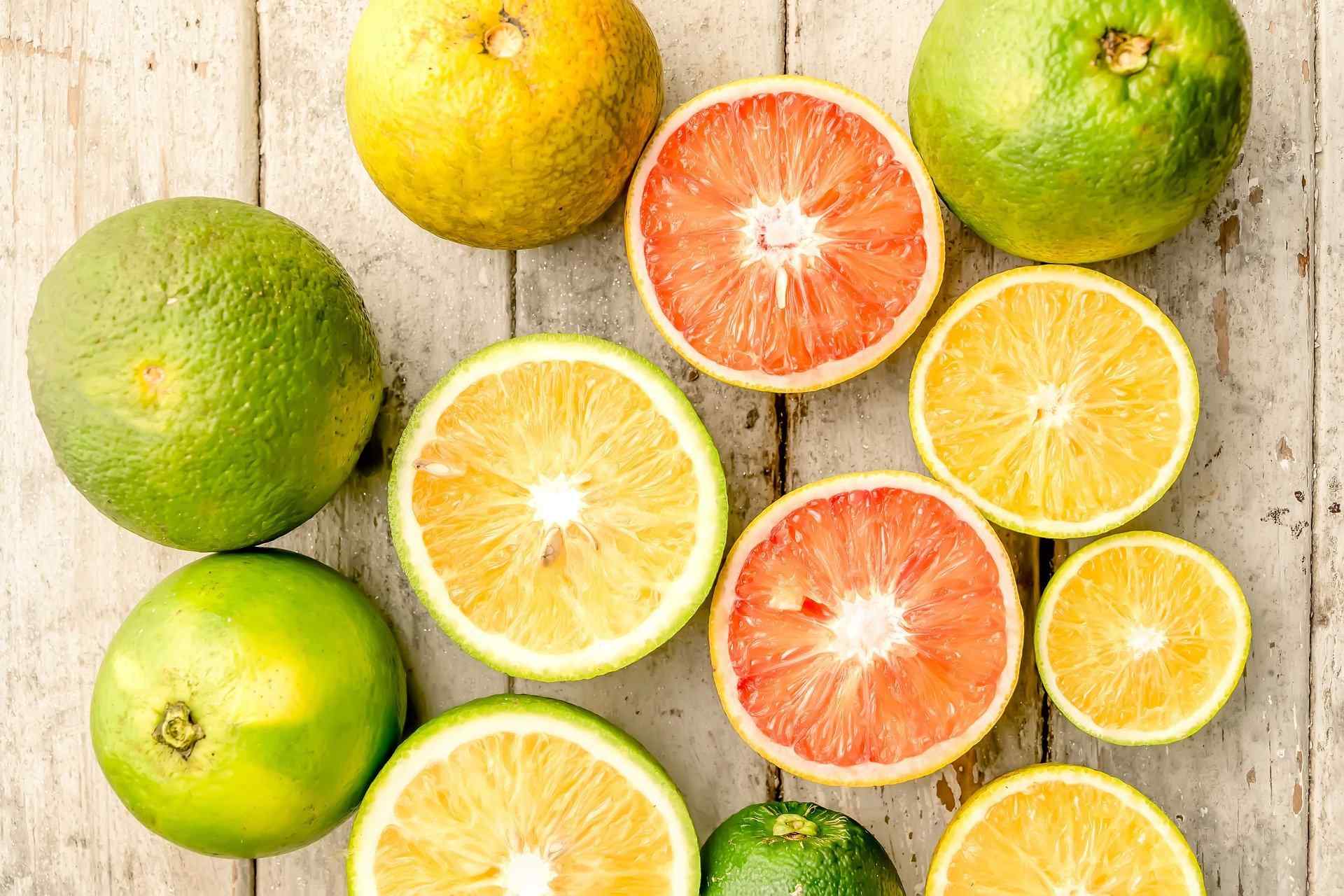Vitamin C is an essential vitamin to keep our body active and healthy. It is also necessary for the growth and repair of body tissues.
It is a water-soluble vitamin found in fruits and vegetables, known as Ascorbic acid.
Vitamin C is also available as natural dietary supplements in the form of pills and tablets.
Vitamin C is crucial for our immune function. As our body can’t store vitamin C, we need to consume it regularly.
According to the NIH, the daily requirement of vitamin C is 90 mg for men and 75 mg for women (1).
In this article, we have listed out fruits and vegetables that are rich in vitamin C.

Vitamin C Enriched Fruits and Vegetables
1. Guava:
Guava is exceptionally high in vitamin C and dietary fiber.
Eating fiber-rich foods like guava, may assist weight loss and improve your digestion.
100 grams of guava provides 228.3 mg of vitamin C, which is 270% of the recommended daily intake (RDI) (2).
2. Citrus Fruits:
All citrus fruits have an impressive amount of vitamin C. Also, they are very low on calories and contain a significant amount of fiber.
Vitamin c in citrus fruits per 100 grams:
- Lemon: 53 mg – 58% of the RDI (3)
- Orange: 53 mg – 58% of the RDI (4)
- Sweet Lime (Mosambi): 29 mg – 32 % of the RDI (5)
- Grape Fruit: 33.3 mg – 40% of the RDI (6)
3. Papaya:
Papaya is a nutritious, delicious fruit. It’s incredibly high in vitamin C and minerals.
Papaya is very low on calories and fat. Hence, it’s an excellent choice for weight watchers.
100 grams of papaya provides 62 mg of vitamin C, which is 75% of the RDI (7).
4. Berries:
Berries are one of the best sources of vitamin C and zinc. Like vitamin C, zinc is also an essential mineral for our immune system.
Vitamin C in berries per 100 grams:
- Strawberries: 58.8 mg – 71% of the RDI (8)
- Gooseberries: 27.7 mg – 30% of the RDI (9)
- Blueberries: 9.7 mg – 12% of the RDI (10)
- Grapes: 3.2 mg – 4% of the RDI (11)
- Cranberries: 14 mg – 16% of the RDI (12)
- Boysenberries: 21 mg – 23% of the RDI (13)
5. Kiwi:
Kiwi is rich in fiber, flavonoids, and antioxidants that protect our body cells.
100 grams of kiwi fruit provides 161 mg of vitamin C, which is 194% of the RDI (14).
Kiwi has most of the fiber in its peel. Therefore, it’s good to eat them with the peel.
6. Melons:
Melons such as watermelon, cantaloupe are enriched with vitamin C.
They also contain a significant amount of potassium, which may help lower blood pressure.
However, people with diabetes must avoid melons as they are high on the glycemic index.
Vitamin C in melons per 100 grams:
- Watermelon: 8.1 mg – 10% of the RDI (15)
- Cantaloupe (Muskmelon): 36.7 mg – 40% of the RDI (16)
- Honeydew melon: 18 mg – 22% of the RDI (17)
7. Pineapple:
Pineapple is an excellent source of vitamin C. It provides 47.8 mg per 109 grams serving, which is 53% of the RDI (18).
Since pineapples contain a type of enzyme called bromelain, it is advised to consume them in moderation during pregnancy (19).
8. Cauliflower:
Cauliflower is a leafy vegetable. 100 grams of cooked cauliflower provides 44.3 mg of vitamin C, which is 50% of the RDI (20).
Cauliflower is also a great source of antioxidants, such as flavonoids and carotenoids.
Research says the antioxidants in cauliflower might reduce the risk of chronic diseases (21).
9. Tomatoes:
Tomato is one of the popular fruit, which is almost used in all parts of the world.
Tomato provides 14 mg of vitamin C per 100 grams serving, which is 17% of the RDI (22).
Moreover, research says the consumption of tomatoes associated with a lesser risk of prostate cancer (23).
10. White Radish:
White radish is a root vegetable. 100 grams of cooked white radish provides 14 mg of vitamin C, which is 17% of the RDI (24).
Also, research says the consumption of cruciferous vegetables like white radish is associated with a reduced risk of heart diseases (25).
Conclusion:
Vitamin C is crucial for our body. We need to consume it regularly to maintain the immune system healthy. You can achieve the same by including the above food sources in your regular diet.